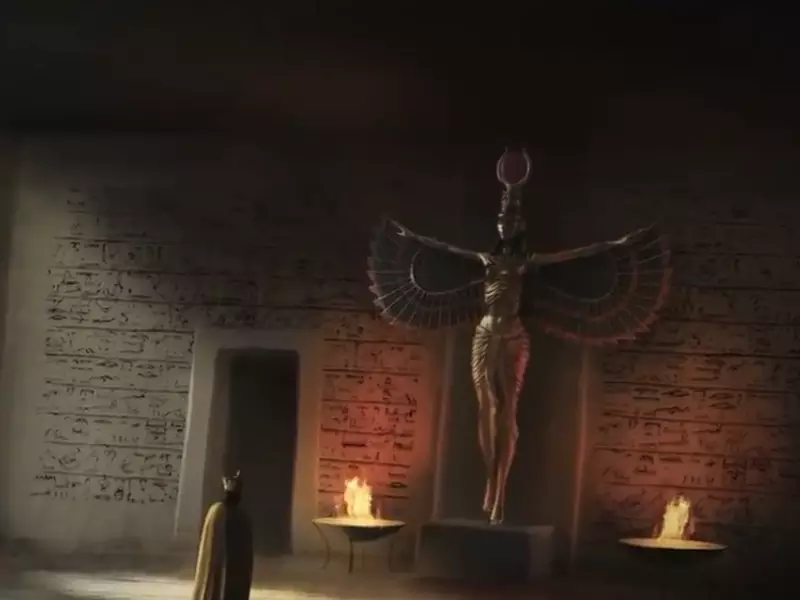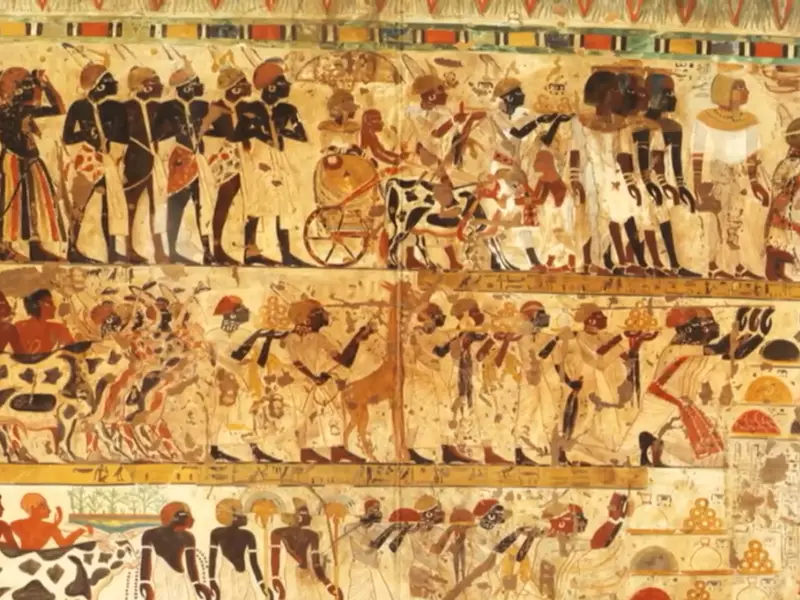The relations between the Old Kingdom of Egypt and Nubia represent a fascinating chapter in the annals of ancient history, characterized by complex interactions that shaped the destinies of both civilizations. The Old Kingdom, known for its pyramid-building era, and Nubia, with its rich deposits of gold and other valuable resources, engaged in a variety of exchanges that ranged from trade to warfare, influencing each other’s cultures, economies, and political landscapes in profound ways.
The essence of the relationship between the Old Kingdom and Nubia lies in their intertwined histories of conflict, cooperation, and cultural exchange. While Egypt’s expeditions into Nubia were initially driven by the desire to control resources and expand territory, these interactions eventually led to a rich exchange of goods, ideas, and traditions that benefitted both societies. This dynamic relationship contributed significantly to the development of their identities, economies, and political structures.
Throughout their centuries-long interactions, the Old Kingdom and Nubia established a legacy of economic ties, political alliances, and cultural exchanges that illustrate the complexity of ancient interstate relations. From military campaigns that extended Egypt’s influence into Nubian territory to the integration of Nubian customs and deities into Egyptian society, these interactions highlight the interdependency and mutual influence between neighboring civilizations in the ancient world.

Early Contacts
Initial Interactions Between Egypt and Nubia
The ancient civilizations of Egypt and Nubia shared a boundary that was more than just geographical; it was a dynamic frontier where culture, economy, and politics intertwined. The initial interactions between these two regions date back to the predynastic period, highlighting a complex relationship that evolved over millennia.
Egyptians ventured into Nubia for trade, exploration, and military expeditions, drawn by Nubia’s wealth in resources like gold, ebony, and incense. These early contacts set the stage for a multifaceted relationship that would influence the trajectory of both civilizations.
Geographic and Strategic Significance
The Nile River played a pivotal role in the relationship between Egypt and Nubia, serving as a natural conduit for trade and military campaigns. Nubia’s location, directly to the south of Egypt, made it a critical gateway to the resources of central and sub-Saharan Africa. This strategic position meant control over Nubia was synonymous with control over trade routes and access to luxury goods and resources that were highly prized in Egypt and beyond.
Archaeological Evidence of Trade
Archaeological finds, such as pottery, inscriptions, and grave goods, provide tangible evidence of the early trade between Egypt and Nubia. Nubian artifacts found in Egyptian tombs illustrate the flow of goods northward, while Egyptian objects in Nubian archaeological sites reveal the southward spread of Egyptian influence. These artifacts underscore the mutual benefits derived from trade, fostering a relationship that, while competitive and sometimes hostile, was also undeniably cooperative.
Nubian Influence on Egypt
Cultural Exchanges
The relationship between Egypt and Nubia was far from one-sided. Nubia left an indelible mark on Egyptian culture, seen in the adoption of Nubian musical instruments, styles of dress, and even religious practices. The intercultural exchange enriched both societies, leading to a fusion of artistic and cultural expressions that would not have been possible in isolation.
Nubian Mercenaries and Their Roles
Nubians were renowned for their skills in archery and bravery in battle, making them valued mercenaries in the Egyptian army. Their involvement in military campaigns and as members of the Pharaoh’s personal guard elevated their status in Egyptian society and fostered a sense of mutual respect between the two peoples.
Architectural and Artistic Influences
The influence of Nubian architecture and art on Egypt is evident in the adoption of certain Nubian styles and motifs. The construction of Nubian-style pyramids in Egypt, long after the practice had ceased in the north, is a testament to the lasting impact of Nubian culture on Egyptian society.
Egyptian Expansion into Nubia
Motivations for Expansion
The Egyptian expansion into Nubia was driven by a combination of economic, strategic, and political motives. The desire to control the rich resources of Nubia, particularly its gold mines, was a key factor. Additionally, securing the trade routes through Nubia was essential for maintaining and extending Egypt’s influence in the region.
Military Campaigns and Their Outcomes
Egyptian military campaigns into Nubia were characterized by their initial successes and the subsequent establishment of fortified positions along strategic points in Nubia. These campaigns not only secured Egyptian access to Nubian resources but also led to the direct administration of certain Nubian areas, integrating them into the Egyptian state.
Establishment of Egyptian Forts in Nubia
The construction of forts along the Nile in Nubia was a strategic move to control the region’s resources and protect trade routes. These forts served as military and administrative centers, ensuring Egyptian influence in Nubia was maintained. The presence of these forts is a testament to Egypt’s commitment to securing its interests in Nubia.
Economic Ties
Trade Routes and Goods Exchanged
The trade routes between Egypt and Nubia were vital for the exchange of luxury goods like gold, ivory, and incense. These goods were highly valued in Egypt for their use in ritual and adornment. The exchange was not one-way; Nubia also benefited from access to Egyptian grain, beer, and linen, crucial for its development and prosperity.
Nubian Gold and Its Impact on Egyptian Economy
Gold from Nubia was a cornerstone of the Egyptian economy, funding the construction of temples, monuments, and the pharaohs’ tombs. The wealth generated from Nubian gold allowed Egypt to project its power both internally and in the broader Mediterranean and Near Eastern world.
Control Over Resource-rich Areas
The control over resource-rich areas in Nubia was a constant source of contention and conflict but also of cooperation and negotiation. The economic ties that bound Egypt and Nubia were complex, reflecting a relationship that was deeply interdependent and multifaceted.

Political Dynamics
Vassal States and Tribute System
The political landscape between Egypt and Nubia was marked by a complex tribute system that facilitated not just subjugation but also cooperation. Nubia, at various times, comprised vassal states under Egyptian control, which were required to pay tribute in the form of gold, slaves, and luxury goods. This system was not merely a form of subjugation but also a means to ensure peace and prosperity on both sides of the border. It allowed Nubia to maintain a degree of autonomy while contributing to the wealth of Egypt.
Diplomatic Relations and Marriage Alliances
Diplomatic relations between Egypt and Nubia were often solidified through marriage alliances. Such unions served as political tools to strengthen ties and ensure stability. Queens of Nubian origin, or Egyptian pharaohs married to Nubian princesses, became symbols of unity and harmony between the two lands. These alliances were testament to the diplomatic acumen of both civilizations, understanding the power of kinship ties in diplomacy.
Conflicts and Resolutions
Despite the periods of peace and cooperation, conflicts between Egypt and Nubia were inevitable, given their strategic interests in the region. These conflicts often resulted in military confrontations but were usually followed by periods of negotiation and treaties. Resolutions typically involved territorial concessions, tribute agreements, or the reinforcement of marriage alliances, showcasing a pragmatic approach to conflict resolution that prioritized long-term stability over temporary victories.
Cultural Integration
Religious Syncretism and Shared Deities
The cultural integration between Egypt and Nubia is perhaps most vividly illustrated in the sphere of religion. Religious syncretism led to the worship of shared deities, with gods like Isis and Osiris being venerated in Nubia, while Nubian deities such as Dedwen and Amanitore were respected in Egypt. This blending of religious practices not only facilitated cultural exchange but also reinforced the bonds between the two civilizations, creating a shared spiritual landscape.
Nubian Elites in Egyptian Society
Nubian elites played significant roles in Egyptian society, with some rising to prominent positions within the royal court and military. Their presence in Egypt was a reflection of the social mobility and integration that characterized the relationship between the two lands. Nubian commanders, diplomats, and even royalty were not uncommon in ancient Egypt, highlighting the respect and recognition afforded to Nubians in Egyptian society.
Burial Practices and Mutual Influences
The mutual influences between Egypt and Nubia extended into the realm of burial practices. Nubian tombs began to exhibit Egyptian architectural styles and burial customs, including the use of sarcophagi and mummification. Conversely, Egyptian burials occasionally incorporated Nubian elements, underscoring the deep cultural exchanges that permeated every aspect of life and death in these ancient civilizations.
Legacy of the Relations
Nubia’s Role in Egypt’s 25th Dynasty
Nubia’s influence on Egypt reached its zenith during the 25th Dynasty when Nubian kings ascended to the Egyptian throne. This period is often referred to as the Nubian Dynasty, marking a time when the cultures, economies, and politics of Egypt and Nubia were deeply intertwined. The Nubian pharaohs of this era are credited with revitalizing Egyptian culture and religion, as well as restoring the country’s power and prestige both domestically and internationally.
Long-term Impacts on Regional Power Dynamics
The relationship between Egypt and Nubia had long-term impacts on the power dynamics of the region. Their intertwined histories influenced the political, economic, and cultural developments of northeastern Africa, setting the stage for future civilizations in the area. The legacy of Egyptian-Nubian relations is a testament to the complexity of intercultural interactions and their capacity to shape civilizations over centuries.
Archaeological Discoveries and Their Interpretations
Archaeological discoveries in both Egypt and Nubia continue to shed light on the nature of their relationship. From temples and tombs to artifacts and inscriptions, these findings provide invaluable insights into the shared history of these ancient civilizations. Interpretations of these discoveries highlight the fluid nature of Egyptian-Nubian relations, revealing a relationship that was as competitive as it was cooperative, and as complex as it was dynamic. The ongoing analysis of these archaeological finds not only enriches our understanding of Egypt and Nubia but also offers broader lessons on the nature of intercultural exchanges in the ancient world.
Frequently Asked Questions
How did the Old Kingdom influence Nubia?
The Old Kingdom of Egypt exerted a significant influence on Nubia through military campaigns that led to the establishment of Egyptian forts and administrative centers in Nubian territory. This expansion facilitated the integration of Egyptian cultural, religious, and architectural practices into Nubian society, marking the beginning of a period of profound cultural exchange.
What role did Nubia play in the economy of the Old Kingdom?
Nubia played a crucial role in the economy of the Old Kingdom by providing access to critical resources, most notably gold. The Nubian gold mines were highly valued by the Egyptians, contributing to Egypt’s wealth and the financing of monumental construction projects, including the pyramids.
How did cultural exchanges between the Old Kingdom and Nubia manifest?
Cultural exchanges between the Old Kingdom and Nubia manifested in several ways, including the adoption of Nubian deities into the Egyptian pantheon, the influence of Nubian art and architecture on Egyptian practices, and the presence of Nubian mercenaries and officials in Egyptian society. These exchanges highlight the deep interconnectivity between the two civilizations.
Conclusion
The historical relationship between the Old Kingdom of Egypt and Nubia is a testament to the complexity and dynamism of ancient intercultural relations. Through centuries of interaction, ranging from conflict to cooperation, these two civilizations forged a shared history that contributed significantly to their development and left a lasting legacy on the cultural, economic, and political landscape of the region.
This enduring legacy, characterized by mutual influence, economic interdependence, and cultural integration, highlights the importance of understanding the nuanced interactions between neighboring civilizations. It serves as a reminder of the interconnectedness of human societies, underscoring the role of cultural exchange and cooperation in the advancement of civilization.
